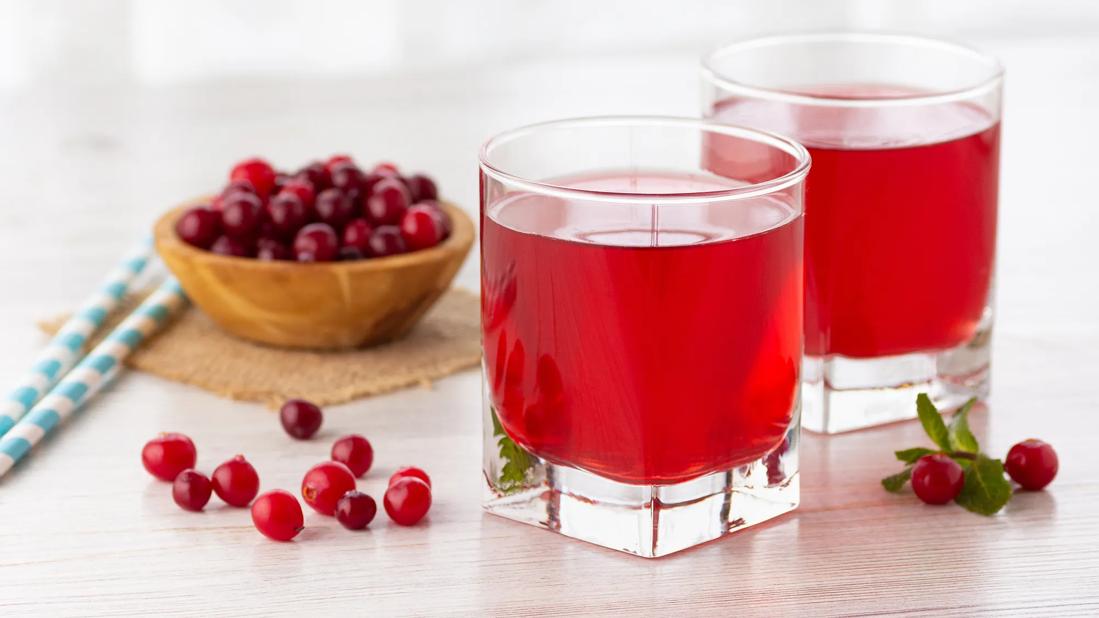Cranberry juice and cranberry pills may prevent future UTIs when taken consistently

Image content: This image is available to view online.
View image online (https://assets.clevelandclinic.org/transform/a2c03bae-b217-4e23-9324-d3c7114dfebf/cranberry-juice-glasses-1193255058)
Two glasses of cranberry juice, with two paper straws and a bowl of fresh cranberries on the table
One of the most widely held beliefs about urinary tract infections (UTIs) is that drinking cranberry juice (or taking cranberry supplements) can prevent and get rid of them. We know that what we eat can have profound effects on our health and wellness, but does cranberry juice help with UTIs?
Advertisement
Cleveland Clinic is a non-profit academic medical center. Advertising on our site helps support our mission. We do not endorse non-Cleveland Clinic products or services. Policy
Urologist Emily Slopnick, MD, shares the science behind these claims.
Cranberries contain an active ingredient called proanthocyanidins (PAC). PAC is a flavonoid with antioxidant and anti-inflammatory properties that make it harder for E. coli and other bacteria to stick to the lining of your bladder. It’s believed that increasing the amount of PAC in your urine helps prevent infections in your urinary tract.
“Increasing your water intake makes good sense to dilute and clear any bacteria in your bladder, and one research study found that women who had at least 1.5 to 2 liters of water per day had fewer episodes of UTI symptoms,” says Dr. Slopnick.
Studies suggest taking 36 milligrams (mg) of PAC per day to prevent UTIs, but more research is needed to find out how often you need to take that much PAC for it to be effective. A 2016 clinical trial found that taking a cranberry extract with 36 mg of PAC was effective when used twice per day for seven days. But a 2024 series of 10 clinical trials found that using cranberry products daily only significantly reduced the risk of UTIs when they were used continually for 12 to 24 weeks.
Not knowing the amount of PAC in cranberry products could also lead to inconsistent dosing, especially in supplements. In other words, products may not always have enough PAC to prevent bacteria from sticking to your bladder wall.
Advertisement
Still, the American Urological Association’s guidelines on recurrent UTIs in women state that doctors may suggest using cranberry products to prevent UTIs because it’s low-risk.
The bottom line? “Cranberry won’t hurt, but it may help,” says Dr. Slopnick. “It could be worth trying if you struggle with frequent UTIs. You need to take the cranberry supplement every day to prevent UTIs, not just with symptoms. I recommend following the instructions on the bottle or packaging for dosing.”
More studies are also needed to figure out which offers better prevention: cranberry juice or cranberry supplements.
A 2016 clinical trial of 185 female nursing home residents found no significant results for those who took cranberry pills after one year. A 2024 review found that cranberry juice provides better outcomes against UTIs. But updated studies suggest that both cranberry pills and cranberry juice help reduce the risk of UTIs.
“If you choose cranberry juice, make sure it’s 100% cranberry juice, as the common cranberry juice cocktail has very little cranberry juice and won’t help prevent UTIs,” clarifies Dr. Slopnick. “Also, there is no specific ‘dose’ of cranberry juice, and juice has a high sugar content. To keep things simple, I recommend taking a daily cranberry supplement for a more concentrated dose of the PACs.”
For most people, there’s little harm in using cranberry products for UTI prevention. But cranberries are also acidic and high in sugar, which could cause an upset stomach and other symptoms. Always talk to a healthcare provider (especially if you’re pregnant or breastfeeding) before starting a supplement, as it can interact with medications. And be cautious about using cranberries for UTIs if you have:
You should also talk to a healthcare provider if you’re taking:
Antibiotics are the only effective treatment for UTIs. But when it comes to prevention, cranberries aren’t the only way to be proactive against future infections. Try these at-home prevention strategies:
Advertisement
Advertisement

Sign up for our Health Essentials emails for expert guidance on nutrition, fitness, sleep, skin care and more.
Learn more about our editorial process.
Advertisement
Yes, but male UTIs are often the result of another issue like diabetes, prostate problems or kidney stones
Only antibiotics will cure a UTI, but home remedies could help prevent future infections
Staying hydrated and peeing after sex can help prevent this common post-sex condition
A bladder infection is definitely a UTI ... but not all UTIs are bladder infections
Signs to look out for include pain and changes in frequency or urgency
Recurrent urinary tract infections are most common in women, seniors
The ins and outs of urinary tract infections
This spinning sensation is a symptom, not a condition, so you need to know what’s causing it before you can treat it
Although it could be used as a moisturizer, this new trend is not recommended
Communicating clear limits helps protect your time, energy and emotional well-being
High cholesterol can be genetic, but testing and treatment can lower your heart disease risk